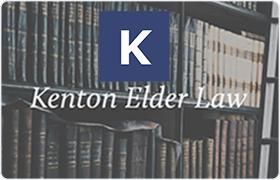Lexington Estate Lawyer, Kentucky, page 3
Sponsored Law Firm
-
 x
x

Click For More Info:
-
Kenton Elder Law
713 College Rd Paris, KY 40361» view mapEstate Law Helping Generation After Generation
Kenton Elder Law works with families to ensure smooth financial transitions and long term care arrangements as older adults move into later stages of life.
800-932-7301
Edwin H. Clark
Corporate, Estate Planning, Personal Injury, Wills & Probate
Status: In Good Standing Licensed: 27 Years
John Brugger
Commercial Real Estate, International Tax, Estate Planning, Business
Status: In Good Standing
 Carolyn Kenton Paris, KY
Carolyn Kenton Paris, KY Practice AreasExpertise
Practice AreasExpertise
